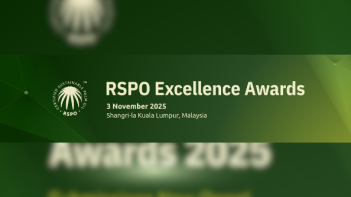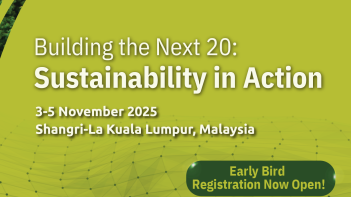RSPO hosted numerous events during the public consultation process of the Supply Chain Certification (SCC) Standard recently, including the SCC requirements in the RSPO Principles and Criteria (P&C) and SCC Systems in different regions as part of the SCC review.
Some of the hot topics discussed during the public consultation sessions surrounded the requirements related to the registration of transactions, auditable data, internal auditor capacities, certification cycle, and auditor competency.
Furthermore, what makes this review rather interesting is the possible inclusion of the Shared Responsibility requirements in the SCC Standard (or a separate document) to be applicable to those organisations seeking or holding SCC.
The Secretariat hosted three face-to-face meetings in Asia, one in Europe (in English), as well as two webinars in Spanish and English, which attracted over 200 participants. Additionally, RSPO members were asked to provide feedback on the SCC Standard and Systems draft through online surveys, resulting in a total of 75 respondents who gave 270 comments about the SCC Standard. A further 49 respondents gave 147 comments on the SCC Systems document.
The main proposed changes in the SCC Standard are the inclusion of relevant documents as annexes; for definitions to be improved and included; and amendments of the general chain of custody requirements related to internal audits, supplying mill lists, and registration of transactions.
For the SCC Systems, the main changes are related to the certification process requirements as the competencies of audit teams, certification audit and conflict of interest, and the requirements to audit multi-site food service companies.
Overall the sessions and comments have been really valuable and productive, as shown by the feedback and input from attendees at the various events:
"Communication between RSPO Secretariat and participants has been well performed. Hope all feedback from CBs could be well taken into RSPO Secretariat’s consideration further. And we will be having a comprehensive auditable standard and system." – SAI Global representative.
"Thanks for reaching out. It is a meaningful session overall." – IOI Group representative.
“The consultation session was a very valuable get together with different stakeholders from the industry, the certification bodies and the branch association. Many exciting discussions led to valuable insights and interesting changes of opinion while keeping in our minds the ultimate goal of making sustainable palm oil the norm.” – Debora van Boven-Flier, Country Manager Netherland, NEPCon.
After the public discussion period is finalised in September 2019, the next steps are the assessment and inclusion of the comments received to finalise the SCC Standard by the SCC Task Force and the SCC Systems by the RSPO Secretariat.
Keep reading
RSPO accepted in the Netherlands as a private control system for EUDR

RSPO x JaSPON Conference and Member Engagement Forum 2025 Spotlights Japan’s Sustainability Success and Market Growth
Call for Expression of Interest: Independent Investigation of a Complaint
Call for Expression of Interest: Mexico National Interpretation Task Force for 2024 RSPO Principles and Criteria (RSPO P&C) and Independent Smallholder (ISH) Standard

RSPO–APKASINDO Partnership to Boost Inclusive Growth, Certification, and Market Access for Oil Palm Smallholders

Open Letter to COP30 President: Integrating Forests and Biodiversity: A Policy Central to Paris Agreement Success

Bridging the Auditing Divide: Key Takeaways from the RSPO Assurance Forum 11

Extension of RSPO Excellence Awards 2025 Submission Deadline!





